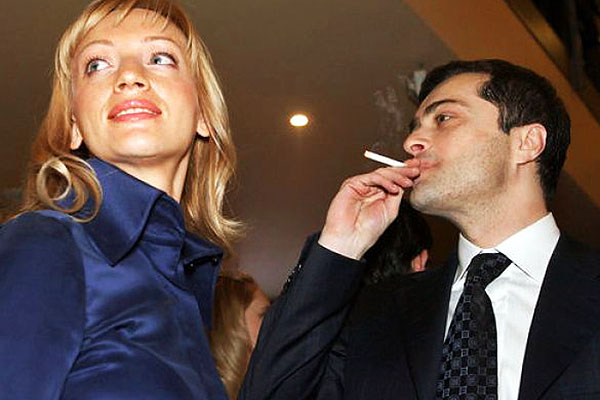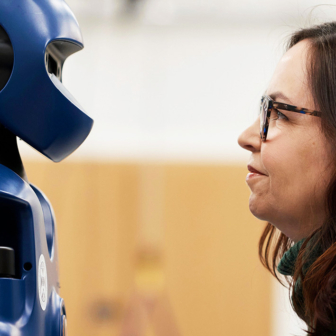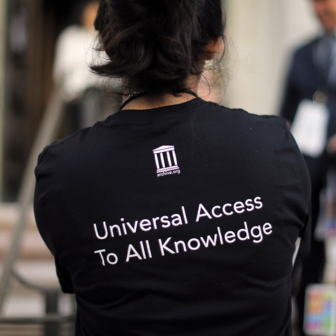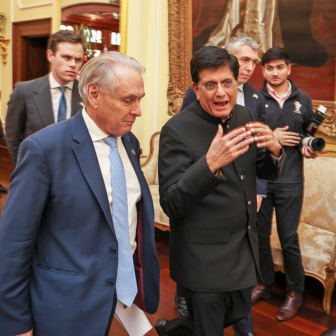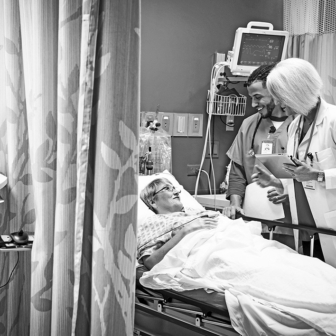Nothing is True and Everything is Possible: Adventures in Modern Russia
By Peter Pomerantsev | Faber & Faber | $29.99
According to a story circulating around the turn of the millennium, the CEO of a big company with investments in post-Soviet Russia felt that his company was just not finding the right sort of Russian trainee execs. Their computer and language skills were excellent, their understanding of capitalist economics and international business was surprisingly good, and they had ambition and a nose for money. But they had no ethics, neither business ethics nor seemingly any other kind. Company seniors were sternly directed to greatly strengthen their emphasis on these values in their recruitment and training.
The anecdote illustrates something about the post-Soviet Russia Peter Pomerantsev moved to early in the Putin years, which is reflected in the sharply observed vignettes that make up his book. This was a society stripped of its moorings, suddenly characterised by a few winners and many more losers. The glamour, pizzazz and cornucopia of (mostly theoretical) choices would have been unthinkable in Soviet times, but alongside these was a lack of security or predictability.
The wild west capitalism set in train by the abrupt transition from command economy to free market in the early 1990s had precipitated a torrent of inflation, sharp declines in production, nakedly corrupt mass privatisations, a widespread loss of personal savings, a crime wave seemingly linked to the new economic model, conspicuous consumption by the newly rich “new Russians,” and conspicuous poverty among pensioners and professors alike, who were reduced to selling their family possessions on the streets to get by. This was the chaos that Vladimir Putin has persuaded Russians was an unnecessary and unalloyed disaster visited on them by Boris Yeltsin and the reformers, who had senselessly dismantled the Soviet Union and everything its ordinary, loyal citizens held dear.
It’s true that the shock therapy was not optimal in either conception or execution. But the task of rapidly transforming a faltering command economy centred on a huge military/police apparatus into a functioning market economy was never going to be easy or quick. In fact, a major cause of the 1990s downturn was the sustained slump in the price of Russia’s oil and gas exports (just as it had precipitated the economic decline in the second half of the Gorbachev-era 1980s). And the spectacular economic recovery that largely coincided with Putin’s meteoric rise and first two presidential terms (for which most Russians still thank him) owed much to a boom in energy prices and those painful reforms of the 1990s.
Putin’s main contribution to this serendipitous outcome was to enable a group of liberal economic advisers from his Leningrad entourage to make some judicious adjustments to Russian economic policy in his early years in power. He still has competent economic advisers in his service, but as the years have worn on their capacity to influence policy has been greatly reduced. And, since 2011, the most influential of them, the liberal and principled former deputy prime minister Alexei Kudrin, has been rusticated from the power elite to the moderate opposition.
The elite that had emerged in the 1990s embraced not only the freedom of speech and freedom to participate in politics, but also, and more particularly, the freedom to become grotesquely, obscenely and publicly wealthy. In the 1990s, large black limousines would roar at terrifying speed down Moscow’s broad boulevards and through pedestrian crossings at eighty kilometres an hour while pedestrians cowered at the road’s edge waiting to attempt a crossing. These were not always, as in Soviet times, office-bearers with a fleet of vehicles and the capacity to close off roads at peak traffic hours; in many cases they were “new Russians” asserting and enjoying their ascent to traditional Russian privilege as they understood it.
Among the new entrepreneurs who seized the opportunity to make millions and then billions were a great number of former members of the nomenklatura, including KGB operatives, who had privileged access to the new opportunities, and often also to old funds cunningly squirrelled away by the old regime. Quite a few underworld figures also became prominent in the emergent plutocracy.
As in the Soviet period, there was symbiosis between crime, corrupt economic activity and the security organs. An analyst probing the transmogrification of organised crime dons and secret policemen into tycoons in the 1990s told a group of listeners that it wasn’t clear whether what we were witnessing was “the mafia-isation of the KGB or the KGB-isation of the mafia in Russia.” The accession of ex-KGB officer Putin to the top job did not, of course, do anything to diminish the prominence of ex-KGB figures in business. (The connections between crime, oligarchy, the state and President Putin are covered very well in Karen Dawisha’s 2014 book Putin’s Kleptocracy.)
Corruption also flowered beyond the circles of well-placed apparatchiki. Many business success stories involved people without Soviet-era connections who had talent, drive and an eye to the main chance in a ruthless dog-eat-dog environment. Respect for property rights hadn’t been a feature of most communist societies – in fact, ordinary people were often unconscious followers of the French anarchist Proudhon’s doctrine that all property is theft, and most assumed that other people’s property had probably been illegitimately acquired in the first place. Because the difficulties of daily life could only be overcome by corruption, a certain amount of it was in any case widely regarded as unavoidable and perfectly reasonable.
Following a visit to his country by a delegation of Supreme Soviet members in the late Gorbachev period, a Western official with extensive experience of the Soviet Union described how shocked he had been to learn that nearly all members of the delegation had not only laid waste to the hotel minibars without paying for any of it (which might have been a naive mistake in some cases), but had also removed quite a lot of the fittings in their rooms. He had been particularly dismayed that one strongly reformist deputy with a fine record as a dissident had been one of the more conspicuous offenders. Many Russians were thus well equipped for the conditions that emerged after the fall of the command economy.
The Putin years saw sharp improvements in living standards, but much more of the same as far as wild west capitalism was concerned, with the rapid expansion of the economy throwing up even greater opportunities. Putin is sometimes credited with having brought the oligarchs under control; all he did, in fact, was to jail or exile a few who impertinently aspired to take part in the county’s political life or were resisting his policies. Oligarchs continued to flourish, though their previous security of tenure and ability to make political choices were curtailed. Those who prospered were increasingly those who were responsive to Kremlin requirements and directives. Within those broad-enough parameters, they could usually enjoy their wealth in any way they wished.
This, then, was the freewheeling world that Peter Pomerantsev came to early in Putin’s reign. The son of Russian dissidents who had managed to emigrate to London in 1978, raised in England but having lived in various other European capitals, Pomerantsev arrived in Moscow in his twenties looking for work and a bit of exotic adventure. Western visitors and expatriates were still welcome, even sought after, in Moscow at that time, and he was able to find work as a director of television documentaries, exploring the extravagance, the giddy variety and the dark nether regions of the new Russia. Provided he managed to ensure a degree of “balance” by including some positive content in his films, his commissioners and producers were happy to run with politically more risqué material. At least at first, that is, for their resistance to his investigative zeal increased over time, and Pomerantsev began to feel progressively less welcome.
He returned to London from Moscow in 2010. After a briefly difficult transition, vividly described in his essay “In Between Tortures,” Pomerantsev quickly made a name for himself in Britain and the West generally as a commentator on contemporary Russian politics and society. He first came to the notice of many with his 2011 London Review of Books essay on Vladislav Surkov, the erstwhile éminence grise of Putin’s Kremlin, memorably entitled “Putin’s Rasputin.” He has also written persuasively on Russian propaganda techniques (see his report “The Menace of Unreality,” written with Michael Weiss, and also “Inside the Kremlin’s Hall of Mirrors”).
Nothing Is True and Everything Is Possible is based mainly on his documentary films. The events and sociopolitical backdrop he describes are essentially those of Putin’s first two terms as president, not the economically stagnant and more oppressive and xenophobic Russia that emerged after Putin announced in 2011 that he intended resuming the presidency. The book should not be regarded as a portrait of the grim police state seemingly bent on unremitting confrontation with the West that Putin has since created, but a picture of something rather less malign. Some of the sour flavour of the most recent Putin years does come through in postscript chapters describing Pomerantsev’s contacts after 2010 with the upper echelons of Londongrad’s hugely wealthy Russian diaspora. His very interesting interviews with William Browder and Jamison Firestone about the tragic Magnitsky case, for example, dramatically illustrate much of the ugly and worsening symbiosis between crime, wealth and state corruption in Russia.
But much of that earlier Putinist landscape was grim enough. Pomerantsev gives us gripping eyewitness accounts of some major political events, including the Chechen terrorist theatre siege in Moscow of October 2002 in which over 170 people, including 129 of the hostages, perished, largely because of the brutality and incompetence of security officialdom. He gives us sometimes chilling portraits of significant players in Russian political life – people like Alexei Weitz, one of the leaders of Putin’s favourite patriotic bikie gang, the fascist-style Night Wolves.
Pomerantsev depicts features of Russian life well known to specialists and expats but still startling in vivid close-up: the monstrous bullying of Russian military recruits and the extraordinary efforts undertaken by their families, typically their mothers, to help them dodge the draft; the ubiquitous need to bribe officials at many levels, especially the police who randomly check pedestrians’ documents or arbitrarily pull over motorists, primarily if not exclusively to enhance their own incomes; the remarkably stylised and seemingly almost compulsory system for bribing your way through a driver’s licence test regardless of your level of competence; and the heroic, but ultimately futile efforts of the brave heritage architect Alexander Mozhaev and his hardy circle of followers to save historic buildings in central Moscow subject to mindless destruction in favour of huge and corruptly approved redevelopment projects. (“Over three years they have saved three buildings out of three thousand,” reports Pomerantsev.)
One particularly absorbing story recounts a businesswoman’s experience of a practice known incongruously in Russian as reiderstvo (“raiding”), whereby a person in a position of power, often an official, steals the victim’s property by having him or her arrested by compliant police and condemned by a venal judge (99 per cent of all accused are convicted in Russia). The victim then rots in jail while their documents of ownership are purloined by more compliant “investigators” and handed over for a consideration to the “raider.” Remarkably, this is a widespread phenomenon in Russia, and large numbers of small and medium entrepreneurs are in jail at any one time, which contributes significantly to Russia’s dismal investment climate and sagging growth rates.
The portraits of largely unknown people that Pomerantsev uses to illustrate the lives and fates of typical categories of Russian humanity are another absorbing feature of the book. The intelligent and literate Vitaly, a Siberian mafia gangster with a brutally disciplined retinue in tow, makes documentary films about himself and goes on to write picaresque bestsellers based on his life. Oliona, the professional mistress, has trained herself at considerable expense to have the necessary qualities in addition to natural beauty to win the patronage – typically transient – of seriously wealthy oligarchs. Benedict, the Western “lapsed economist,” came to Russia with a poor understanding of the country or the language but found employment in various places, including as a consultant for various well-meaning Western acronyms; he writes reports instructing Russian institutions on how to adopt Western organisational and business practices but is slow to recognise that their resistance to foreign ideas and desire to make corrupt use of any funds or schemes that come their way are undermining the whole purpose of his activity.
Then there’s Grigori, the wealthy businessman who throws rampantly extravagant parties which Pomerantsev delights in attending. He is a brilliant mathematician and computer scientist who built his flourishing business honestly enough and from scratch, and pours much of his wealth into supporting the arts. He also supports and funds a mendicant yurodivy (holy fool, a traditional Russian social category), whose dismaying personal hygiene Pomerantsev describes all too clearly, but who Grigori earnestly regards as a seer who will become the saviour of Russia. And various dissident performance artists from the milieu out of which Pussy Riot emerged also make their appearance intermittently in the narrative.
Some of the descriptions of conspicuous wealth and consumption may start to weary the reader a little, as could Pomerantsev’s interest in the often tragic stories of beautiful young women (roughly sixty pages of 282) who are preyed on by wealthy and powerful males or the numerous lunatic sects that emerged in the post-Soviet period. But while he tends to neglect ordinary, less telegenic Russian citizens and their daily struggles, he does focus very effectively on many of the key features of Putinist society – the harshness, the lawlessness, the impunity – and he has a deadly eye for the telling detail.
The longer Pomerantsev stayed in Russia, the more it became apparent to him, as it does to the reader, that the country’s political system was heading towards greater domestic oppression, and that lies and xenophobia had once again become key guiding principles. One of Pomerantsev’s favourite subjects is Vladislav Surkov, who was very much the high priest of the earlier “soft authoritarian” phase of Putinism, during which people were manipulated into compliance with relatively less crude coercion.
Surkov is shown devising ingenious but mendacious reasons for supporting the regime, which he invites intellectuals to adopt. Surkov himself flirted with performance artists and dissident ideas, and even published a book under a transparent pseudonym with somewhat subversive content. But the flirtation was ultimately all part of the radical relativism encapsulated wittily in the title Pomerantsev gave his book, and used instrumentally by Surkov and the regime to justify their grip on power and fuel their struggle against the decadent democracies of the West.
Beneath the intellectual brilliance and sophisticated facade, however, the real Surkov – himself of Chechen origins – is a good friend of the exceptionally brutal Chechen strongman Ramzan Kadyrov, who keeps the rebellious province under tight control on the Kremlin’s behalf. Though partly sidelined within the Kremlin in recent years, Surkov has been closely involved in the planning of Russian operations in Ukraine. He might have attractive qualities, but it’s difficult to class Surkov as a good guy.
The reader thus needs always to bear in mind that over the last four years Putin’s regime has morphed into something markedly less engaging than Pomerantsev’s in-country adventures depict. Pomerantsev is fully aware of these developments of course, as his other recent writings make clear. Surkov’s lighter domestic touch, which gelled reasonably well with the declaratory liberalism of Dmitry Medvedev’s presidency (2008–12), has been supplanted by the more traditionally Soviet head-kicking style of Surkov’s successor as first deputy head of the presidential administration, Vyacheslav Volodin.
It was Volodin who gave us the lapidary formulation, “if there is no Putin there is no Russia.” Together with the hyperactive and hyperzealous but rubber-stamping Duma, the Putin administration is producing a never-ending avalanche of repressive neo-Stalinist domestic legislation and adopting a stridently aggressive anti-Westernism both domestically and externally. A Peter Pomerantsev would have great difficulty finding work in Moscow media today except as a Lord Haw-Haw. •
